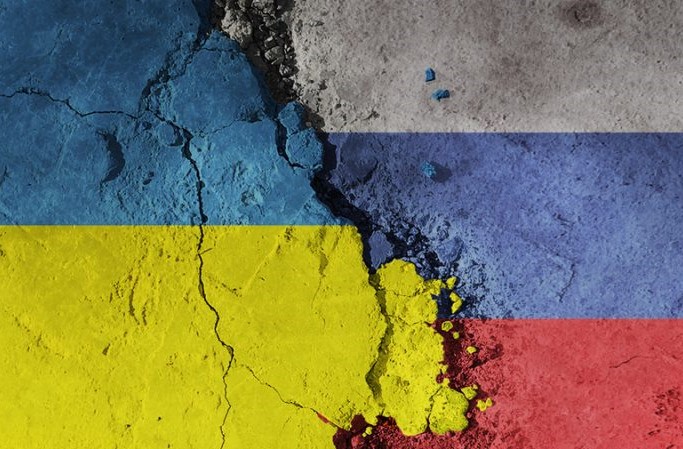The Russian invasion of Ukraine constitutes the first major land war in Europe in decades. Russia’s stated aim is that Ukraine be freed from oppression and “cleansed of the Nazis.” Under this false narrative of a Ukraine run by fascists since 2014 — when its pro-Russia president, Viktor Yanukovych, was ousted — President Putin has launched a devastating attack on Ukraine by land, air, and sea, bombing major cities and prompting a mass exodus of refugees.
Since the invasion on February 24, Russia’s military has faced stiff resistance from the Ukrainian population, and countries around the world have imposed severe sanctions on Russia.
On March 4, 2022, the Mario Einaudi Center for International Studies, in cooperation with the Cornell Jeb E. Brooks School of Public Policy and College of Arts and Sciences, convened an expert panel for a wide-ranging discussion of international and European consequences of Russia’s invasion of Ukraine.
Cristina Florea, a historian of modern Europe and an assistant professor in the department of history in Cornell University’s College of Arts and Sciences, provided a “historian’s perspective” on the conflict between Ukraine and Russia.
Florea unpacked Vladimir Putin’s historical justifications for the war in Ukraine, explaining, “The story of Ukraine’s relationship with Russia is very complicated … What I see happening during this this crisis is — in addition to falsification — an attempt to transpose these contemporary notions of ethnicity or nationhood to modern periods where these did not apply.”
She went on to assert, “What we see Putin doing is basically mixing and matching all these pieces of extremely complicated history to justify what is essentially an act of aggression now. If this same logic is applied to every European state, we would end up dismantling the whole international system as it is.”
Nicholas Mulder, assistant professor in Cornell’s department of history, delved into the “sanctions response” and the economic aspect of the conflict, which affects the entire world, not just Russia and Europe.
Mulder was surprised at how quickly other countries imposed sanctions on Russia, and stressed that the goals of these sanctions remain unclear. “The maximal interpretation is that the aim is actually to end Putin’s rule in Russia. The more minimal aim would be that there should be a ceasefire and an end to fighting, and somewhere in the middle would be an aim that Russia would have to withdraw.”
“But that’s a very large spectrum,” warned Mulder, “and making it clear exactly what sort of demands on that spectrum western sanctions are tied to is vital because that could be the difference between this war dragging on for months or even years.”
Mulder finished off by saying that long-term damage to the Russian economy is likely to have intense worldwide effects. “There is a very high chance that the world is going to enter a major recession this year.”
Stephen Yale-Loehr, a professor of immigration law practice at Cornell Law School, explained the challenges of the mass refugee crisis that has been created by the war in Ukraine.
“Populations fleeing Ukraine will need access to affordable housing, education, the labor market, and healthcare,” explained Yale-Loehr. “How can European countries who already have tight housing markets and overburdened healthcare systems plan for the needs of those displaced by the war on Ukraine? These are questions that European countries are facing.”
Yale-Loehr also recognized that the current Ukrainian refugee crisis is just one part of a worldwide problem. “Let’s not forget other refugee hotspots. Worldwide, 84 million individuals have been forcibly displaced because of persecution, conflict, violence, or human rights violations. We are now witnessing the highest levels of displacement on record.”
“Our international refugee system is reeling from all these crises and wars,” stated Yale-Loehr, acknowledging the current Syrian and Afghan refugee crises. “The war in Ukraine is simply the most recent.”

